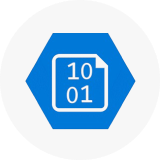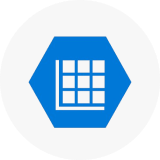Few trends are capturing as much attention as agentic AI—autonomous systems that collaborate with humans, large language models (LLMs), and enterprise data to complete complex tasks. These agents are redefining work: handling customer service, streamlining compliance, conducting research, and orchestrating workflows across distributed environments.
But as organizations scale their use of autonomous agents, one question looms large: How do we govern this power responsibly?
Without strong controls, agentic AI can quickly become a liability—introducing risks around data privacy, compliance, and operational transparency. The goal isn’t to limit what agents can do, but to empower them securely, with the right boundaries in place.
That’s where DreamFactory, a powerful API-centric integration platform, steps in—offering a modern foundation for data governance in agentic environments.
Why Agentic AI Makes Data Governance Harder (and More Critical)
Autonomous agents thrive on fast, flexible access to enterprise data. But this flexibility comes with serious challenges:
- Data leakage: Agents might access more than they should, exposing sensitive information unintentionally.
- Inconsistent access controls: With no central enforcement, permissions may overlap, conflict, or be misconfigured.
- Compliance complexity: Regulations like GDPR and HIPAA demand auditable data protections that can be difficult to maintain across a swarm of self-operating services.
In a world where thousands of agents might be spun up dynamically, a single misstep in access control can lead to significant legal, financial, and reputational damage.
Why API-Driven Data Governance Stands Out
Traditional identity management tools—hard-coded credentials, static access lists, siloed databases—weren’t designed for agentic AI. What’s needed is a dynamic, API-driven model that adapts in real time.
Key principles of API-first governance:
- Centralized policy enforcement, independent of the data source or backend system.
- Fine-grained access controls, applied based on agent role, task, context, or data classification.
- Rapid, scalable integration, with automated provisioning and deprovisioning.
DreamFactory delivers on all three.
DreamFactory: The Governance Toolkit for Autonomous AI
DreamFactory offers a powerful set of features purpose-built to support secure, scalable AI agent deployment:
Role-Based Access Control (RBAC)
Define who (or what) can access which data, and what actions they can take.
|
Role Type |
Data Access |
Operations Allowed |
|---|---|---|
|
Customer Support AI |
Customer profile |
Read, redact PII only |
|
Compliance Agent |
Audit logs |
Read, report |
|
Data Engineer Agent |
Raw data tables |
Read, write (test environment) |
Link roles to external identity providers (LDAP, Active Directory) for consistency and simplified management.
Security & Compliance Built-In
DreamFactory supports major regulatory frameworks out of the box:
- GDPR, HIPAA, PIPEDA, CCPA compliance support
- Encrypted credential management
- Server-side access enforcement to prevent unauthorized overreach by agents
Logging, Auditability, and Threat Detection
Every action by every agent is timestamped, source-tracked, and logged. Add real-time alerts to detect anomalies or suspicious access attempts. Use built-in reports for internal reviews or external audits.
Privacy Protections with Data Masking
Use API-level data masking to anonymize sensitive fields (e.g., names, SSNs, emails) before delivering results to agents in testing or development environments. This enables safe experimentation without exposing real data.
Central Integration Across All Data Sources
From SQL Server and Oracle to Snowflake, MongoDB, and SaaS APIs, DreamFactory abstracts connection complexity so you can apply one set of policies across all data sources. Connect once, govern everywhere.
Data Classification & Schema Mapping
DreamFactory encourages tagging and enforcing data access based on sensitivity:
- Public: Freely accessible content
- Internal: Employee-only information
- Confidential: Sensitive customer/vendor data
- Restricted: Financial, health, or regulated content
Schema mapping ensures that agents only see the data they’re cleared to see, reducing risks from misclassification or undocumented APIs.
What’s Unique About Agentic AI—and How to Govern It
Agentic systems are not just traditional apps running AI behind the scenes. They’re dynamic, adaptive, and autonomous, with needs that evolve constantly.
Unique traits:
- Ephemeral agents: Created on-demand, dissolved after task completion
- Contextual data needs: Pull metadata one moment, run full analysis the next
- Accelerated iteration: Dev environments must feel like production—without the risks
Best Practices for Safe Agent Operations with DreamFactory
- Classify and inventory data: Keep your data map current and tag sensitivity levels.
- Define RBAC roles carefully: Start with least privilege and adjust as needed.
- Audit continuously: Automate log review and permission revalidation.
- Mask data in test environments: Prevent sensitive exposure in QA or dev.
- Enforce server-side rules: Never rely on the agent or client to apply permissions.
- Tune logging granularity: Tailor reports for compliance, ops, or executive stakeholders.
- Stay ahead of regulation: Automate policy updates and track legal shifts early.
Governance at Scale: From Prototype to Production
Your governance needs will evolve as your agentic systems grow, and DreamFactory supports this growth at every phase:
|
Phase |
Governance Focus |
DreamFactory Contribution |
|---|---|---|
|
Pilot/Prototype |
Sandbox protection, data masking, tight logging |
API-level masking, RBAC, fine-grained logging |
|
Production |
Role audit, compliance review, integration enforcement |
Central platform policy management, auditability |
|
Scaling |
Automation in provisioning, real-time monitoring |
Dynamic policy updates, integration with SIEM, alerts |
|
Continuous Ops |
Training refreshers, incident response |
Exportable audit trails, real-time access monitoring |
The ability to centralize and automate policy management, adapt quickly to change, and maintain transparency at every level is critical. With a robust foundation in place, organizations can scale agentic AI initiatives confidently—knowing their data is governed with discipline, clarity, and care.
Final Thought: Agentic AI, Responsibly Empowered
The future of enterprise automation will be built on millions of autonomous micro-decisions—each one demanding trust, security, and accountability. Governing these systems at scale requires a platform that is API-native, adaptive, and security-first by design.
DreamFactory provides that foundation—enabling teams to innovate freely while ensuring data remains protected, monitored, and precisely governed.
Agentic AI doesn’t have to be a risk. With the right architecture, it becomes a competitive edge.
Terence Bennett, CEO of DreamFactory, has a wealth of experience in government IT systems and Google Cloud. His impressive background includes being a former U.S. Navy Intelligence Officer and a former member of Google's Red Team. Prior to becoming CEO, he served as COO at DreamFactory Software.
























 Blog
Blog
